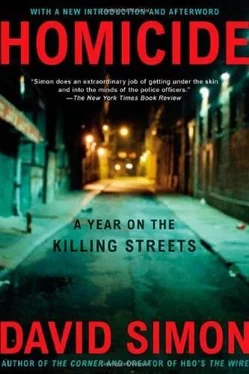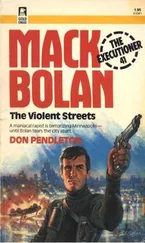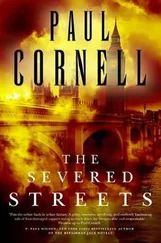The one notable exception to the marked honesty of a good police witness, the only point in the legal process where law officers can be expected to lie routinely or, at the very least, exaggerate, is probable cause.
For narcotics or vice detectives in particular it’s become a ridiculous game, this business of establishing the correct legal prerequisites for a search or arrest. Not surprisingly, it isn’t enough to say that the suspect was a squirrel who’d been out on that corner about ten minutes too long. No, the law of the land requires that the arresting officer had the opportunity to observe the defendant operating in a suspicious manner on a corner known for drug trafficking and that upon closer inspection, the officer noticed a glassine envelope sticking out of a sweatshirt pocket as well as a bulge in the front waistband indicative of a weapon.
Yeah. Right.
Probable cause on a street search is and always will be a cosmic joke, a systemic deceit. In some parts of Baltimore, PC means looking at a passing radio car for two seconds longer than an innocent man would. The courts can’t acknowledge it, but in the real world you watch a guy until you’re sure he’s dirty, then you jack him up, find the dope or the gun and then create a legal justification for the arrest.
In homicide, where the name of the game is search-and-seizure, with affidavits written in advance for specific addresses, the PC generally has to be straight up. After all, you need the judge’s signature on the warrant just to get you inside. A detective with a talent for the written word may be able to get some weak or exaggerated PC past a duty judge, but at least he’s required to put something in the affidavit.
For the homicide detective, the only real moment of equivocation on the stand occurs not over the issue of probable cause, but when a defense attorney asks whether his defendant’s statements were coerced, or whether his client asked for a lawyer before making those statements. In his heart of hearts, a good detective knows that every statement is, to some degree, the result of coercion if not outright fraud. But, holding to a strict legal definition, he can answer in the negative and call his testimony something other than perjury. After all, the defendant got his rights, he signed his Form 69. He had his chance.
“But did he want a lawyer?”
Well, a detective could ask, how do you define want? Probably half of all suspects get into an interrogation room and say they want a lawyer, or they might need a lawyer, or maybe they should talk to a lawyer. If they stick to it, if they really want that lawyer and they don’t want to talk, then the interrogation is over. But any detective worth his salt tries-for a time, at least-to convince them otherwise, content in the knowledge that there isn’t a Supreme Court justice standing outside the interrogation room door.
“Did my client ask for a lawyer?”
“No, he did not.”
On the stand, the last rule for a homicide detective is that nothing is personal-nothing between the detective and the defendant, nothing between the detective and the lawyers. On the stand, demeanor counts. A cop who loses his cool long enough to display contempt or malice for the defendant or his counsel provides the jury with the image of a malevolent system, of a crusade rather than a prosecution. The defense attorney calls you a liar, you impassively deny that. He declares your investigation to be incompetent, you deny that, too. His client eyefucks you from the trial table, you ignore it.
For a veteran detective, there is nothing hard in any of that. After all, if it’s the ordinary homicide case, the indifference is probably genuine. But even when the case matters, a veteran doesn’t do anything to make the defendant believe that he cares, or that the outcome of this case has any relevance in any world that rates. In its way, it’s an attitude that offers the defendant even less than anger or contempt. In court, a detective’s message to the defendant is clear and unmistakable: Win or lose, you’re still a piece of shit living on the margins. If the jury comes back guilty, you’re down for some years; if the jury doesn’t do the job, you still don’t count. Six months from now, you’ll be back in city jail on another charge, says the attitude. Either that or someone on my shift will be out there one night chalking your ass off.
Strangely, the defendants rarely take it personally. They come into the courtroom from the heat of the basement lockup; shackled and cuffed, they look around and catch the eye of the detective. More often than not, they nod or acknowledge the loyal opposition in some small way. In the course of a long trial, a few actually reach out and shake the detective’s hand or mutter a senseless thank-you for no reason that can be discerned, as if the detective was doing them some kind of favor by showing up.
But on rare occasion, when a defendant is talking shit-performing in the courtroom, signifying, passing wolf tickets to the judge and prosecutor-a detective will step through the psychological barrier. Only then will the defendant be acknowledged in any real way; only then does a detective let anyone suspect that he may actually care about the legal outcome.
Earlier in the year, Dave Brown happened to be in a courtroom for the jury’s verdict on two of his defendants-west-siders, age twenty-two and fourteen, charged with murdering an elderly minister in a street robbery near University Hospital the previous spring. Brown remained silent as the jury forewoman read out first-degree verdicts, but the older defendant suddenly lost his chill.
“You happy now, bitch?” he shouted, turning to glare at the detective.
The gallery fell into silence.
“Yes,” said Brown quietly. “I’m pleased.”
Inside a courtroom, it’s as much as a detective allows himself.
WEDNESDAY, OCTOBER 19
At his cluttered desk on the fourth floor of Courthouse West, Lawrence C. Doan rearranges a stack of legal pads and runs one finger along the bottom of his dark bangs and then back over the top, carefully reassuring himself that all is in place. No cowlicks today. No antigravitational shift in the tie’s Windsor. No lint on the lapels. No problem whatsoever, save for the fact that today he’s going to try to prosecute a murder in the city of Baltimore, which is a little like trying to drive a Winnebago through the eye of a needle.
And now, when Doan wishes only to be left alone to review notes and prepare his opening, a homicide detective bounds through the door to yank his prosecutor’s chain over matters large and small-a deliberate act of sadism, born of the same impulse that causes small children to pull the wings off flies.
“Are we ready?” asks Garvey.
“Are we ready,” says Doan. “You come in here ten minutes before court and ask me that?”
“Just don’t fuck up my case, Larry.”
“How can I?” asks Doan. “It came to me prefucked.”
Garvey ignores him. “The photos come in with me, right?” he asks, wondering about evidentiary order.
“No,” says Doan, trying to think bigger thoughts, “I’ll get those in with Wilson. Where’s Wilson? Did you call the crime lab?”
“And the bullets?” asks Garvey, ignoring him. “Do you need the bullets today?”
“Which bullets? Where’s Wilson, does he-”
“The bullets from the trunk of the car.”
“Um, no. Not today. You can take those back to evidence control,” says Doan, preoccupied. “Does Wilson know he’s on this afternoon?”
“I think so.”
“You think so?” says Doan. “You think so? What about Kopera?”
“What about him?”
Doan begins to change colors.
“You’re not going to get to Kopera this afternoon, right?” asks Garvey.
Читать дальше












